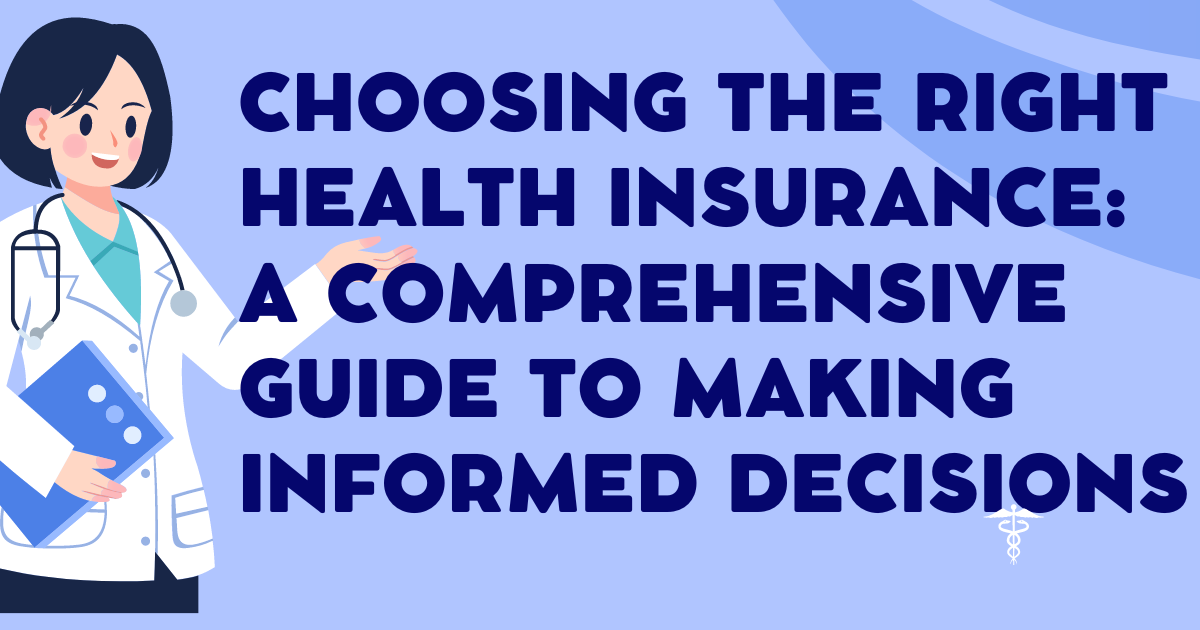Unravel the complexities of health insurance with our comprehensive guide, designed to empower general readers with the knowledge and insights needed to make informed decisions. From understanding different types of coverage to navigating the fine print, this article offers a deep dive into the world of health insurance, providing practical guidance for a diverse audience seeking clarity and confidence in their choices.
Understanding Health Insurance Basics

Health insurance is a crucial component of managing one’s healthcare needs and expenses. It provides financial protection by covering the costs of medical and surgical expenses incurred by the insured. Understanding the basics of health insurance is essential for making informed decisions regarding one’s healthcare coverage.
What is health insurance and why is it important?
Health insurance is a contract between an individual and an insurance company that requires the insurer to pay for the insured’s medical expenses in exchange for premium payments. It is important because it helps individuals access necessary medical care without incurring exorbitant out-of-pocket expenses, thereby safeguarding their financial well-being.
Different types of health insurance plans
There are several types of health insurance plans, including Health Maintenance Organization (HMO) plans, Preferred Provider Organization (PPO) plans, Exclusive Provider Organization (EPO) plans, and Point of Service (POS) plans. Each type has its own network of healthcare providers and specific rules for coverage.
Key terms and concepts to know
It is essential to be familiar with key terms and concepts related to health insurance, such as premiums (the amount paid for coverage), deductibles (the amount individuals must pay before the insurance kicks in), copayments (fixed amounts paid for covered services), and coinsurance (the percentage of costs individuals pay after meeting the deductible).
Assessing Your Health Insurance Needs
Before selecting a health insurance plan, it is crucial to assess your healthcare requirements, considering factors such as age, pre-existing conditions, and anticipated medical needs. Additionally, evaluating your budget and financial capabilities is essential to ensure that the chosen plan is affordable and sustainable. Understanding the importance of network coverage is also vital, as it determines the accessibility of preferred healthcare providers and facilities.
Navigating the Enrollment Process
Understanding the enrollment process is key to securing the right health insurance coverage. Individuals should be aware of the difference between the annual open enrollment period and special enrollment periods, which allow for changes to coverage outside of the annual enrollment window. Knowing how to enroll in a health insurance plan, whether through an employer, a government marketplace, or a private insurer, is crucial. Additionally, avoiding common mistakes during the enrollment process, such as providing inaccurate information or missing deadlines, is essential to ensure seamless coverage.
Decoding Health Insurance Coverage
In-network and out-of-network coverage distinctions are important to understand, as they determine the extent of coverage for services provided by specific healthcare providers. Moreover, comprehending deductibles, copayments, and coinsurance is crucial for managing out-of-pocket expenses. Unraveling the fine print of a health insurance policy to identify exclusions and limitations is also necessary to avoid unexpected gaps in coverage.
Making Informed Decisions
Comparing different health insurance plans based on premiums, deductibles, and out-of-pocket costs is essential for making an informed decision. Understanding the impact of these financial factors on overall healthcare expenses is crucial. Additionally, considering additional benefits and perks, such as coverage for prescription drugs, mental health services, and preventive care, can significantly enhance the value of a health insurance plan.
Utilizing Your Health Insurance Wisely
Maximizing preventive care benefits, such as routine check-ups and vaccinations, can contribute to overall health and well-being while minimizing long-term healthcare costs. Understanding the claims process and how to navigate it effectively is essential for accessing healthcare services without unnecessary delays or complications. Making the most of health insurance coverage for optimal healthcare outcomes involves being proactive in seeking necessary care and leveraging available benefits.

[…] plays a vital role in providing health insurance to millions of Americans. Understanding its different parts, enrollment options, and associated […]